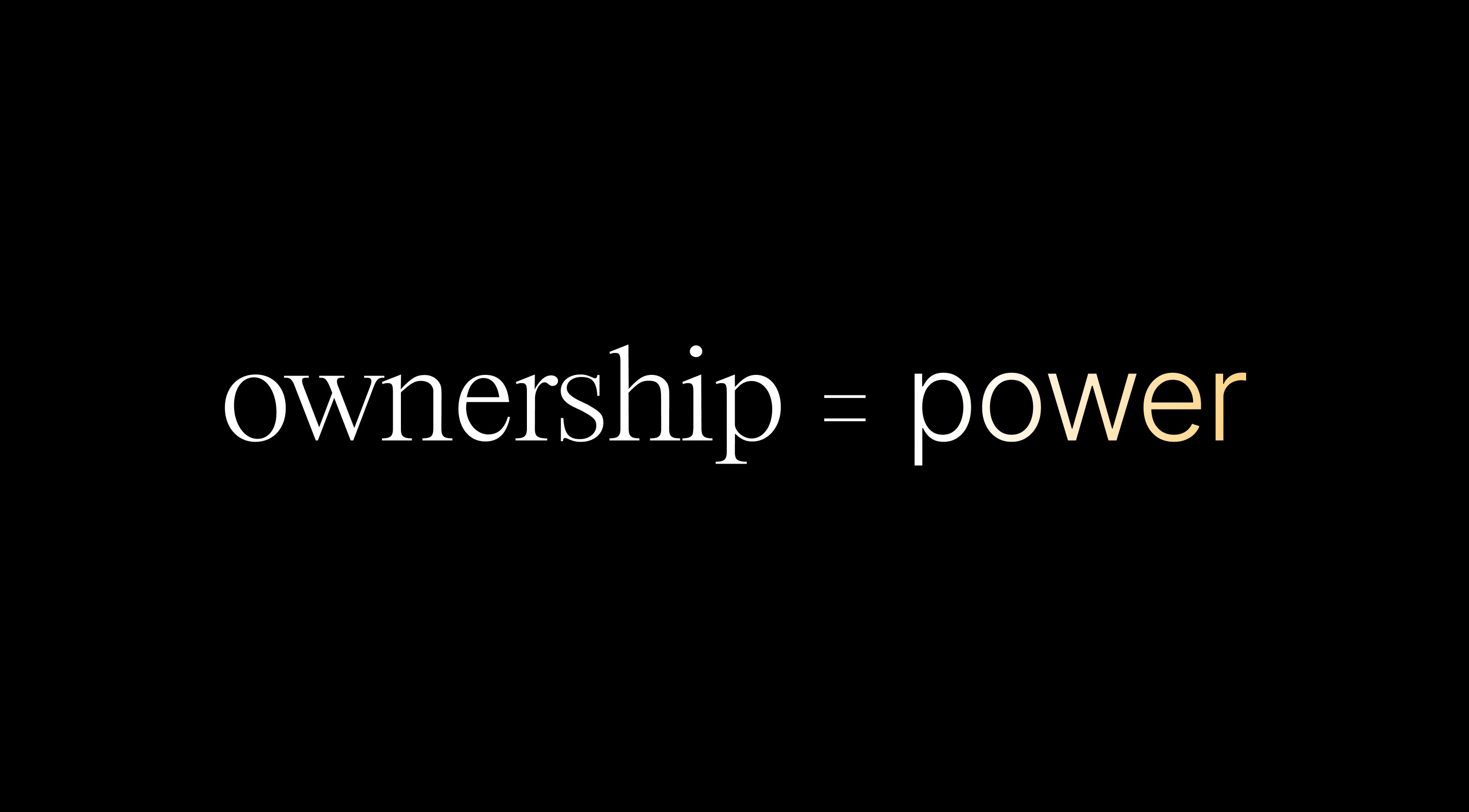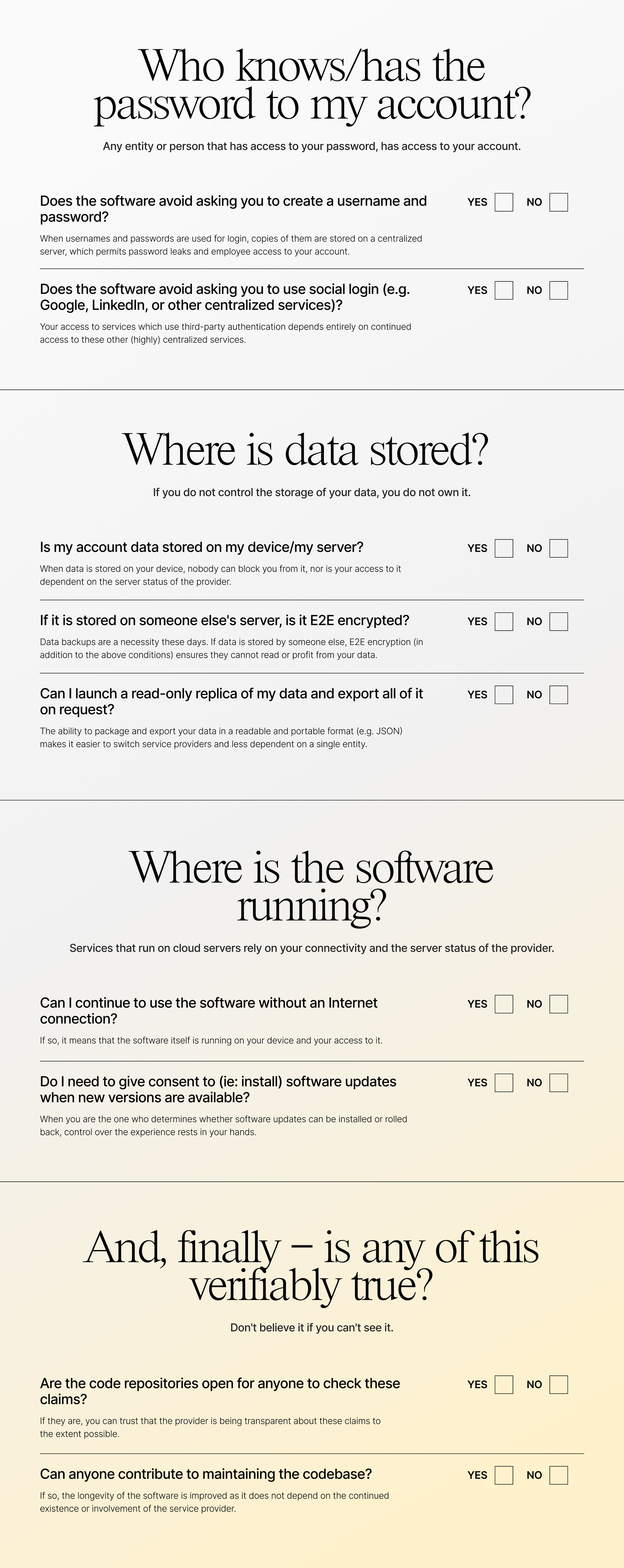Data ownership: an inalienable right verified
Explaining why it’s important to retain control over your thoughts while ideating and proposing a few criteria to test any tool for true data ownership capability.

Data ownership is one of our product's pillars and a guiding philosophy for everyone on the team. In this article, we'll describe precisely why it is important and propose a few criteria, with which you can evaluate any tool's data ownership promise.
Individuality and freedom
In western societies the state can never interfere with your freedom of thought. Media services which convey the thoughts that you expressed may come under scrutiny, but notes or sketches which are a product of your individual creative process are outside of reach. Therefore, platforms where you ideate, plan, draft or prototype and - most importantly - collaborate should be yours alone and only you should own your thoughts and data.
We've noticed since a while that the discourse around empowering users with data ownership has become widespread. This is true for web3 as well as legacy collaboration and productivity tools. The former evolved through a vision for an Internet that prioritized creators over algorithms, and networks over platforms.
However, months or years after the debut of web3 projects they've disappointed their communities by exposing them to precisely the same kinds of vulnerabilities that characterized web2. As for legacy tools, the internet is rife with the following examples:
- Your data can be used to train our proprietary AI (Zoom)
- We are working to restore access to XYZ service (Google Drive and again)
- Our service has been breached (Okta)
- Your password has appeared in a leak (Yahoo)
- Our services will shut down in 10 days (all compassion with Zenly users)
Each of the above becomes possible if and only if ownership of your account, data, and/or software has been somehow retained by the service provider. As long as that is the case, you remain vulnerable to the decisions made by these providers.
The power of data
In the context of modern software, power is accrued via digital ownership. This means who owns your data has the unique power to benefit from it. Though poorly defined in the digital world, ownership is a familiar concept to all of us in the physical world. Owning the keys to your accounts and the data therein, is like owning the keys to your home and the possessions inside of it.
When you—and you alone—own your data (and the keys to it), you don’t need someone else’s approval to enter. No one can kick you out, nor can they enter your home, take your possessions, or sell them without your explicit consent. As the above examples show, they can and do restrict access to their rightful owners.
The data ownership test
In the digital world, there's an absence of a similar precedent around how we should keep our data secure and what we should expect from our tool providers. To help you navigate this, here's a set of questions to help you understand whether it’s you or your service provider who owns the keys to your experience.

Embracing data ownership
To be clear, we're not suggesting that every service needs to check every box on this list in order to be considered trustworthy or viable. In some cases, data encryption itself is enough; in others, the costs of decentralizing ownership far outweigh the benefits.
We know from experience that building a tool that combines encryption with an intuitive and enjoyable user experience is no easy task. What we do want, is to advocate a proper understanding of what secure collaboration is and how to protect your digital autonomy and data ownership.
If you believe in our ideals, join us on our mission and be a guiding light for others who want to take control over their digital lives while staying productive. You can help us by:
- Giving Anytype a try on desktop or mobile
- Upvoting Anytype on Alternative To
- Joining our community or subreddit
- Checking out our open source code and contributing to localization
- Following Anytype on X and YouTube
